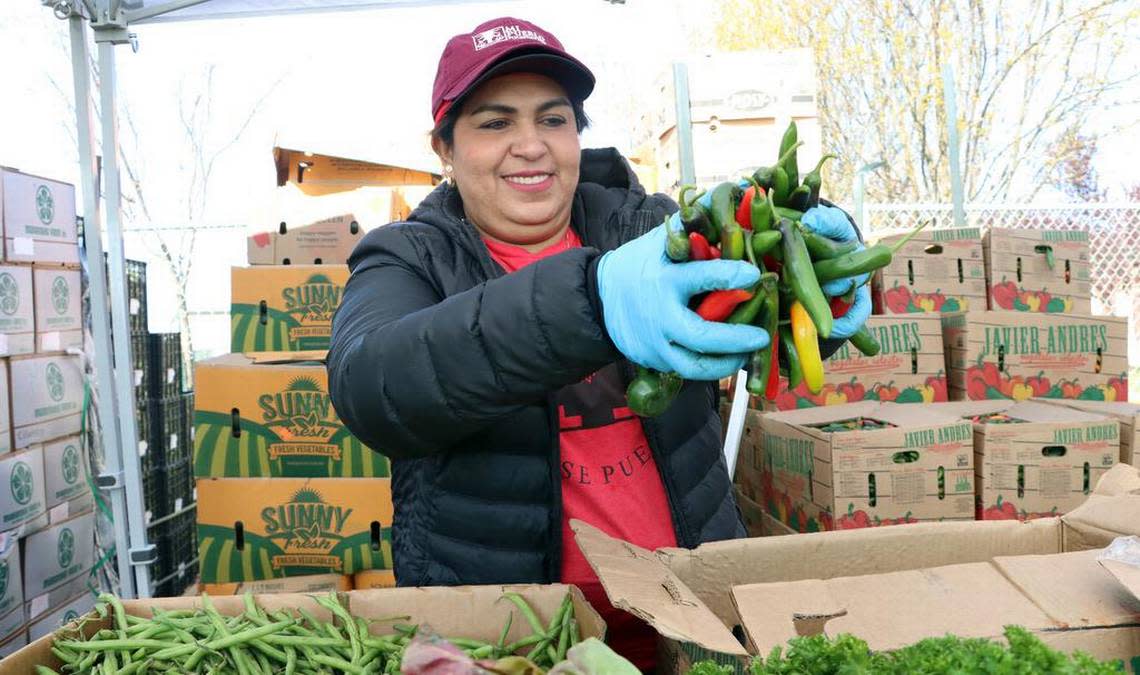California farmworkers had a brutal winter. A good way to help now is unemployment benefits | Opinion

This year has been one of severe hardship for many San Joaquin Valley farm workers.
First came the flooding. It began in January in Planada, a small community east of Merced where agricultural workers have lived for decades. Miles Creek overflowed and water flooded into neighborhoods, forcing 4,000 people to be evacuated.
Then, in March, flooding concerns developed in various communities in Tulare County as heavier flows occurred in the Tule, Kaweah and Kings rivers and the long-dry Tulare Lake began reforming. The towns of Alpaugh and Allensworth were particularly threatened, though some flooding occurred in Lindsay when a creek there overflowed its banks.
In the wake of the storms, families have witnessed their residences feet-deep in water. Property has been damaged or ruined. Units have become uninhabitable. Even documentation has been lost for those who had such important paperwork.
“Many people don’t have anything,” is how Mari Perez-Ruiz, executive director of the Central Valley Empowerment Alliance, sums it up.
In a bit of cruel irony, landlords often tell their tenants to clean up the units themselves without providing the necessary supplies, she said.
Mother Nature has created other problems. With all of the storms, field work has been hard to come by. Perez-Ruiz said workers she has recently counseled generated earnings for just a handful of days. “We have a few reporting only four days of labor for this month (March). The rents still have to be paid, the utilities have to be paid.”
Now comes the specter of more flooding as snow begins to melt. Concerns are that any spell of warmer weather will send runoff rushing down rivers into Fresno, Kings and Tulare counties. The more that vineyards, orchards and fields are submerged, the less chance there will be for employment and earnings.
Government help
Gov. Newsom succeeded in getting the federal government to declare parts of California as major disaster areas; federal relief funding is now available to help people in seven counties, including Tulare.
Newsom said that farm workers who do not qualify for federal help due to immigration status can receive assistance from the state Department of Social Services. The agency will work through local governments and nonprofits to provide disaster relief and case management.
Merced County’s outreach to 45 flooded-out Planada families involved developing short-term housing plans. Those families had been staying at the Felix Torres Migrant Center, but have since been re-housed. Mike North, a representative for Merced County, said each housing plan is unique to the individual, with some cases including temporary shelter at hotels, while others involve staying with family, returning home or finding a new residence.
Such steps are valuable in meeting immediate needs. But the specter of unhoused and unemployed farmworkers remains if work does not materialize.
Providing benefits
To deal with that possibility, state Sen. María Elena Durazo, D-Los Angeles, has introduced a bill known as the Excluded Workers Program, which would allow undocumented workers to receive unemployment benefits for two years.
As reported by Bee staff writer Laura S. Diaz, Newsom vetoed a similar proposal last year, citing the multimillion-dollar cost to update the Employment Development Department’s information technology systems. Approximately 1.1 million workers in California are undocumented, and collectively they contribute $3.7 billion in state and local tax revenues, reported UC Merced’s Community and Labor Center.
“Our community is affected by not having access to unemployment benefits,” said Armando Celestino, a Triqui interpreter with the Centro Binacional para el Desarollo Indígena Oaxaqueño (CBDIO), or the Binational Center for the Development of Oaxacan Indigenous Communities. “We want this to change.”
Durazo’s bill would provide undocumented workers with $300 weekly for up to 20 weeks of unemployment.
Fresno Assemblyman Joaquin Arambula attended a recent meeting with community advocates and farm workers at Fresno City Hall to advocate for safety net benefits for all Californians. He pledged to support Durazo’s bill.
A rally in support of safety-net programs for undocumented workers is planned at the state Capitol in Sacramento next Thursday, April 13.
Providing unemployment help to undocumented people may seem radical to some. But keep in the mind the critical work such employees do in California. Theirs are the jobs no one else wants. California cannot function without them. One example: They kept food supplies flowing during the pandemic.
The Legislature should approve unemployment benefits for the state’s undocumented workers, and Newsom should sign it into law this time. Their year has been harsh enough.

